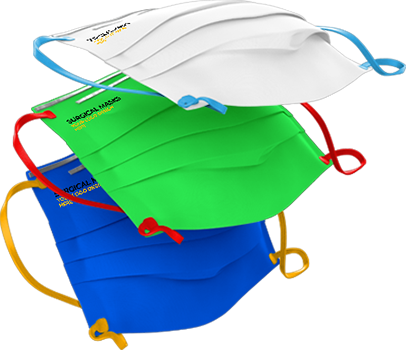Coccidia in Cats Poop: What to Look For
Coccidia in cats poop is an important indicator of an infection caused by microscopic parasites known as coccidia. These parasites, when present in your cat’s stool, can cause gastrointestinal distress, and recognizing the fecal signs early can help with treatment and recovery. In this article, we’ll explore Coccidia in Cats Poop, what it looks like, how it’s diagnosed, and the impact it has on your cat’s health.
🦠 What Does Coccidia Poop Look Like in Cats?
Coccidia poop in cats can appear abnormal in consistency, color, and smell. Since the single-celled parasites involved are not visible to the naked eye, pet owners need to rely on changes in the fecal sample. Common indicators include watery diarrhea, mucus, or blood in stool, all of which point toward potential intestinal tract issues. Recognizing these signs early can make a significant difference in managing the infection and avoiding prolonged treatment.
🔬 Identifying Coccidia in Cat Poop
To confirm if your cat’s poop contains coccidia, a veterinarian must examine a fecal sample. A microscopic examination is required, as coccidial oocysts are too small to be seen without magnification. A standard fecal test can reliably detect the presence of these coccidial species, especially when symptoms such as blood in stool, abdominal distress, and watery diarrhea are present. Early diagnosis helps reduce the risk of transmission and speeds up recovery with timely antiprotozoal treatment.
🧪 Diagnosing Coccidia in Cats Through Stool Testing 🐱
Veterinarians diagnose coccidia using a fecal flotation test, which helps identify coccidian parasites by separating them from the rest of the fecal sample. This diagnostic tool is essential, particularly when your cat displays signs of gastrointestinal illness. Inconsistent shedding of the parasite means that multiple fecal samples may be necessary for accurate diagnosis. Accurate testing ensures targeted treatment and prevents complications from developing.
🧫 How Stool Testing Detects Coccidia in Cats
During a fecal test, the stool sample is mixed with a special solution that causes the coccidial oocysts to float to the surface. The top layer is examined under a microscope to detect the parasites. Since coccidia isn’t always present in every stool passed, repeating this test over a few days may be necessary. Testing is especially important if your cat is housed near other cats, as the risk of transmission is higher in multi-cat environments like shelters or catteries.
🧪 What Happens During a Coccidia Stool Test?
The stool testing process is simple and non-invasive. First, the vet collects a fresh fecal sample ideally from the litter box to ensure accuracy. Next, the sample is mixed with a flotation solution and viewed under a microscope for the presence of coccidial species. In persistent cases or outbreaks, PCR tests may be used to identify the specific strain of coccidia. Proper testing ensures that any required antiprotozoal treatment is targeted and effective.
🩺 Understanding the Health Implications of Coccidia in Cat Poop 🐾
Coccidia in your cat’s poop is a red flag for an active intestinal tract infection. These parasites infect the lining of the intestines, leading to inflammation and poor nutrient absorption. Symptoms like watery diarrhea, blood in stool, abdominal pain, and lack of appetite are common. If left untreated, the parasite can cause malnutrition, severe dehydration, and weight loss, especially in kittens or cats with weakened immune systems.
🐱 How Coccidia Affects Your Cat’s Digestive Health
The infection begins when coccidian parasites enter and reproduce in the intestinal lining. This can result in serious gastrointestinal illness including abdominal distress, cramping, and diarrhea. The irritation caused by the parasites leads to poor digestion and may cause your cat to avoid food. Without proper care, these symptoms can escalate, making supportive care and antiprotozoal treatment essential.
🩺 What Coccidia in Poop Means for Your Cat’s Health
If coccidial oocysts are found in your cat’s stool, it means your pet is actively infected and capable of spreading the parasite. Although adult cats might handle the infection better, kittens and immunocompromised cats are at higher risk for complications. If not addressed early, the infection can require prolonged treatment, result in chronic gastrointestinal illness, and increase the risk of transmission to other pets via shared litter boxes or contaminated surfaces.
🐾 Conclusion
Coccidia in cat poop is more than just an unpleasant symptom, it’s a sign of a potentially serious gastrointestinal illness caused by coccidian parasites. These single-celled parasites infect the intestinal tract, and spotting early fecal signs like blood in stool, mucus, or watery diarrhea is essential for timely diagnosis. A veterinarian can confirm the infection through a fecal test using fresh fecal samples and microscopic examination.
Effective treatment involves prompt antiprotozoal treatment along with supportive care to manage symptoms and prevent complications. Keeping your cat’s litter box clean and disinfected using methods like steam cleaning can help reduce the risk of transmission and prevent reinfection. With early action and proper care, most cats recover quickly and return to full health.
❓ Related FAQs
How do I prevent my cat from getting coccidia?
Preventative measures include maintaining a clean living environment, providing clean food and water, and ensuring that your cat is regularly dewormed. Avoiding contact with infected animals can also help prevent the spread of coccidia.
Is coccidia contagious to humans?
The most common types of coccidia that affect cats do not infect humans. However, other types, such as Cryptosporidium, may have zoonotic potential. It’s essential to practice good hygiene, such as washing your hands after handling your cat or cleaning the litter box.
What does coccidia poop look like in cats?
Coccidia poop in cats is typically soft to watery, may contain mucus or blood, and has a foul odor.
Can cats clear coccidia on their own?
Healthy adult cats may clear mild coccidia infections on their own, but kittens and sick cats usually need treatment.
Next Steps:
For more information on treatment options for coccidia in cats, visit our article on Treatment Options for Coccidia in Cats.

